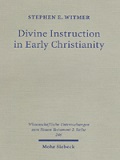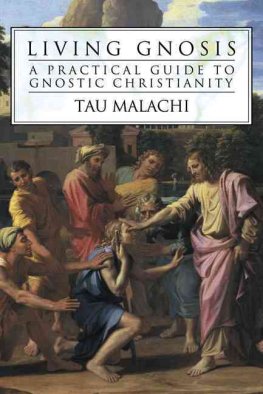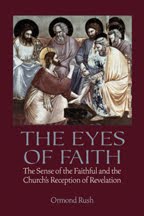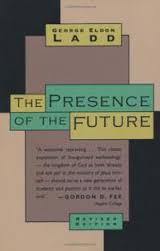![]()
"The teaching of the Paraclete, as the continuation of Jesus' teaching, must also be understood as the fulfillment of the promise of eschatological divine instruction"

"The teaching of the Holy Spirit/Paraclete
I have argued that divine instruction comes through Jesus. However, it is likely that to be "taught by God" in John 6.45 also has an internal aspect. In addition to Jesus' teaching, divine instruction seems to be an inward teaching by which an individual is drawn to Jesus. This is indicated by the parallel between the "drawing" of 6.44, and the teaching and learning of 6.45ab. That teaching in the Fourth Gospel can be understood as an internal event is clear from the reference to the Holy Spirit/Paraclete teaching all things (14.26).
John 14.26 is in fact a significant passage for discerning how the evangelist understands divine instruction. Here, the Paraclete and Holy Spirit are clearly identified. The future tense of the verbs in 14.26 is notable; the Spirit's activity is said to be (from Jesus' perspective) in the future. As Schnackenburg suggest, 14.26 is directly connected with 14.25. Jesus speaks to the disciples while abiding with them (14.25), but cannot clarify everything in his limited discourse. Therefore, he promises them the future teaching of the Holy Spirit/Paraclete (14.26). In light of the many clear parallels between the Paraclete and Jesus in the Fourth Gospel, this suggests that the Holy Spirit continues the didactic role of Jesus. If my argument in this chapter is correct (i.e., that Jesus' teaching is understood by the evangelist as direct divine instruction) then the teaching of the Paraclete, as the continuation of Jesus' teaching, must also be understood as the fulfillment of the promise of eschatological divine instruction...
The didactic storyline of the Fourth Gospel suggests that in order to portray the didactic relationship between Jesus and the Father, the evangelist develops an analogy based on the relationship of a father and son. The ultimate purpose of the analogy is to indicate that Jesus learns so perfectly from the Father that he becomes transparent to God. Therefore, when people hear Jesus' teaching, they receive direct divine instruction. I conclude the chapter by suggesting that the teaching of the Holy Spirit/Paraclete, because it is understood as the continuation of Jesus' teaching, is also regarded as the fulfillment of the promise of eschatological divine instruction.”
Stephen E. Witmer, Divine instruction in Early Christianity
Coronet Books (December 2008), pp. 106-7
"The Message of the Comforter does not detract in any way from the teachings of Jesus the Christ. It does not encroach on the long-established system of organised, orthodox belief. On the contrary, the World Mother is coming into physical manifestation at this critical time to expound the teachings of the Christ, to present them in a form that will be acceptable to all God's children, to draw the peoples of the earth together, to unite, to bind, to gather the scattered flocks of the human family; to function as the Comforter of the world during the period described in the Scriptures as "The last tribulations.”..
The only difference between the teachings of this little book and those of the Scriptures lies in the fact that the writer sees the Holy Spirit in the garb of a Woman, a Mother. Time alone will show us whether this is correct or not. No one who is under a delusion is mentally equipped to create the form of a mighty Being who is able to manifest among men as a leader, able to give expression to the powers of the Spirit in prophecy, in healing, in telepathy, in working the signs and wonders and miracles which we are wont to associate with the life of Jesus, and Jesus alone, in spite of the fact that He said "The works that I do shall ye do also; and greater works than these shall ye do.” A modern Messiah who is able to save the situation at the eleventh hour would naturally manifest in such irresistible power that all our reasoning will be swept away. And that is what I expect; a demonstration of the power and majesty of God in the fragrant beauty of an earthly, feminine form, a comforting, womanly Presence whose mission will be far more effectively carried out because it presents the most unexpected deliverance.”
Johanna Brandt, The Paraclete OR Coming World Mother (1936), pp. 4-5

"If one researches the words for"Spirit" in Hebrew and Greek, one will find that in Hebrew it is actually a feminine word, and in Greek it is neuter, having no specific gender association. Thus, the choice among orthodox and fundamental Christians to speak of the Holy Spirit as male is a distortion of the actual languages of the Scriptures. Recognizing this, when the model of the Holy Trinity is used among Gnostic Christians, the Holy Spirit is spoken of as female and is often called The Mother Spirit...
There are no images of God the Father in Sophian tradition. The Father represents the transcendental aspect of God, which is formless, nameless, and only known through God The Mother, which is the immanent aspect of God. The Father is the Great Unmanifest and The Mother is All Manifestation. Thus, the Divine Mother is God ever near to us—as near as our breath, the beat of our hearts and our very bodies, material and spiritual. She is the All-in-All according to Sophian teachings, and being the matrix of creation and the archetypical principle of form, images of The Mother abound.”
Tau Malachi, Living Gnosis
Llewellyn Publications (Sep 8 2005), pp. 81-2
"At the heart of Christianity stands the figure of Jesus and the message he embodies. In the Greek language of the New testament, this message was called euangelion. We traditionally translate that word as "gospel," but in modern English it would be more exact to translate it as "good news.” ...
Christianity is about two thousand years old. In that time, it has developed many aspects that are related loosely, if at all, to the original message of good news. As long as these aspects of Christianity don't undermine or conceal the good news, there is no harm in that. In some cases, however, later developments have virtually negated the good news...
Christian people continue to owe their primary allegiance to the Jesus who proclaimed the good news. Both within the church and outside it, people are now in a time of refocusing and rediscovery, a time in which they are asking what is really central to Christian faith. If we encounter conflicts between the good news and the traditions of the various Christian denominations, we must be prepared to choose the good news over everything else.
My book is one effort to express that good news in terms that can make sense today. There are undoubtedly other ways as well, and yet not everything that claims to be the good news of Christ actually is. You, the reader, must try to judge. Here are three tests to apply.
1. It must be related to the words and life of Jesus as we find them in the gospels.
2. It must be news, offering some element of surprise, some new way of looking at the world, even when you've already heard it a hundred times.
3. It must be good news, giving hope for the future, not merely creating new burdens and obligations.
These are alarmingly high standards to suggest to one's readers.”
Louis William Countryman, Good News of Jesus: Reintroducing the Gospel
Trinity Press International (February 1, 1993) , pp. 1-2

'Thus Luke's vision of the Holy Spirit is that of a director and guide of the community in its mission. However, there is a mechanism that is recognized as necessary for interpreting the direction and guidance of the Spirit, that of community discernment. Just as the Pauline letters highlight the need for the community to discriminate and come to a judgment when there are conflicting interpretations of the Spirit, so too Luke narrates how the community would come together in council in order to discern the assistance of the Spirit. 'It seemed good to the Holy Spirit and to us' sums up the three-way Lukan vision of the working and interpretation of the Holy Spirit: individual interpretation, the community's judgment, and the Holy Spirit working through both.
According to Johannine pneumatology, Jesus promises another Paraclete, the Spirit of Truth who will enable the community to understand the meaning of Jesus. Helmut Gabel neatly summarizes the Johannine vision:
In the view of the Gospel of John, the word of the eye-witnesses of Jesus and that of the future disciples is the work of the Spirit. The entire tradition process is a process enabled by the Spirit. The Spirit is, as it were, the 'interpreter' of Jesus, who leads to the true understanding of the Christ event and reveal's the event in its deepest sense.
The Johannine vision can be outlined in four points. Firstly, the Johannine literature emphasizes that the Spirit/Paraclete is given to all individuals in the community. Secondly, Jesus promises another Paraclete who will take the place of Jesus; nevertheless, although the Spirit/Paraclete takes the place of Jesus, the Spirit/Paraclete does not supplant or negate Jesus. The "secessionists," according to the author of 1 John, are wanting to give independent authority to the Spirit over against Jesus, thereby serving the necessary element of continuity with Jesus. The Johannine literature emphasizes that it is the role of this Spirit/Paraclete to ensure continuity with Jesus. A phrase recurs: "from the beginning.” The Spirit ensures continuity with the pre-Easter Jesus. Thirdly, the Johannine literature emphasizes that it is the role of this Spirit/Paraclete, not only to ensure continuity with Jesus, but also to enable the community to interpret the word of Jesus for a new context, ensuring faithful adaptation and innovation. Fourthly, the Johannine literature emphasizes that it is the role of this Spirit/Paraclete to indeed further the teaching of Jesus beyond what Jesus was able to teach, speaking a new word of the glorified Jesus.'
Ormund Rush, The Eyes of Faith
The Catholic University of America Press; (January 22, 2016) pp. 21-22

Shri Mataji Nirmala Devi was
Christian by birth, Hindu by
marriage, and Paraclete by duty
I have told them (Her 1970's disciples and leaders) I had never said this on from a platform... They have been telling me, "Mother, you must say that once.” I said, "In America I'll declare it.”
So today I declare that I am the Holy Ghost. I am the Holy Spirit who has incarnated on this Earth for your Realization.”
The Paraclete Shri Mataji
New York, USA—September 30, 1981
Advocate/Paraclete.”The term occurs in one of the fullest descriptions of the nature and function of the Holy Spirit and is therefore more important than its limited use would suggest. If John was the last gospel written, as was suggested early by Clement of Alexandria (150-215 C.E.), then it is not surprising to find there a fuller expression of the nature of the spirit than was usually present in the OT or the synoptic Gospels (including Acts). In the Gospel and Letters of John, the spirit is described as being sent from the father to be in and with the believers, teaching them, and reminding them of Jesus' words and deeds (John 14:15-26). The paraclete is identified with Christ (1 John 2:1) and with the spirit (John 14:26), is said to proceed from the father as"The spirit of truth," and will guide Christians to the truth (John 15:26; 16:13).”
W. E. Mills and R. A. Bullard, Mercer dictionary of the Bible (1990, 13)
"In 16:12-15 the Paraclete guides Jesus' community into all the truth, but it does so in a complex way: The Paraclete will move the church towards the future, declaring things to come, while at the same time the Spirit will speak only what the Spirit has heard — the things of Jesus, and hence things that are the Father's. The Spirit's instruction turns in two directions, speaking of originality, newness and the future, and at the same time of dependence, givenness, and the continuing authority of what has been disclosed.
The supreme purpose of the Spirit's work is the glorification of Jesus (16:14). By the Paraclete, the fullness of the divine life that is brought in Jesus is made known and accessible to redeemed humanity.”— Daniel B. Stevick 2011, 289
“He always talked about the future. He said "You have to enter into the Kingdom of God"; "Holy Ghost has to come.” He said that "You have to get somebody who will counsel you; who will redeem you; who will comfort you and that is the Holy Ghost.”"
The Paraclete Shri Mataji
“If we follow Him then we cannot be conditioned by anything because He talked of Spiritum only. Spirit cannot be conditioned, conditioned by anything... I am here to tell you all these things which Christ could not tell, and to fulfill what He wanted to say. All those things I am saying to you.”
The Paraclete Shri Mataji
Christmas Puja, Delhi, India—December 24, 1995
"Paraclete (Gk. Parakletos) is a Greek term meaning "helper," "intercessor," or "advocate.” In a Christian context, the term is invested with particular significance in JOHANNINE LITERATURE, where it can refer either to JESUS (who advocates with God on behalf of believers) or the Holy Spirit, as in the Gospel of John when Jesus promises to send an eternal 'helper' (paraclete) following his death and resurrection. ORIGEN OF ALEXANDRIA argued that the term means 'intercessor' when referring to CHRIST and 'comforter' when referring to the Holy Spirit, which comforts believers. In this sense, the Paraclete replaces the physical presence of Jesus, dwelling in believers who accept the truth of Christ. Over time, and in the context of developing doctrines of the TRINITY, Christian theologians ascribed the title Paraclete exclusively to the Holy Spirit.' (Orlin 2015)
“Christ didn't say that, "I am the Destination.” He said, "I'll send you the Holy Ghost"; "I'll send you a Comforter"; "I'll send you a Redeemer"; "I'll send you a Councilor.” He talked about the future.'
The Paraclete Shri Mataji

Shri Mataji Nirmala Devi was Christian by
birth, Hindu by marriage, and Paraclete by
duty
And this is only in this special age, which I call as the Blossom Time, is happening. If they are not seeking the truth, that means they are not yet evolved as this should have been.
But this is a special time that we call as the Last Judgment and that time has come. In the Koran it's called as Qiyamah and described very clearly what will happen at this time.
All these have been indicated in all the books which are, I would say, mystical or we can call as religious—whatever you may call it—the mystic part of it. They have all indicated this time. This time, by the end of this century, this should happen.”
The Paraclete Shri Mataji
The Blossom Time, Royal Albert Hall, London, UK—July 5, 1998
"All that the Father has is mine. For this reason I said that she will take what is mine and declare it to you. 16:15
The Evangelist again uses the idiom of agency; the Father shares everything with the Son, his emissary, All that the Father has is mine. The Son, as "the agent of God for salvation," has made the Father known. Jesus will in the same way send the Paraclete (v. 7), who is his agent, as he is the Father's. The Spirit takes what is Christ's (and therefore also ultimately the Father's) and, as a faithful shaliach, declares it to Jesus' people. For the third time since v. 13, the term declare (anangelo) is used of the Spirit. The Spirit who is first a hearer (v. 13b), becomes articulate as a communicator, a preacher, a herald. All is finally from the Father; all is shared between the Father and the Son, but through the Spirit all is finally declared to you.”— Daniel B. Stevick, 2011, 259-60
“To know God itself is such a great blessing, because He is the God Almighty; the God who has all the powers and all the loved ones.
He is our Father, He is waiting for us to enter into His Kingdom, to enjoy that peace and beauty of His Being, because He has created us and He wants His Creation to come up to that.”
The Paraclete Shri Mataji
“I am here to do the job of God Almighty's.”
The Paraclete Shri Mataji
Bordi, India—February 6, 1985
"Jesus says in v. 7 that he will send the Spirit. In the First Discourse he said that the Spirit would be given by the Father in answer to his request (14.16) or in his name (14.26). In either way of putting the matter, the Paraclete is not generated by human initiative, but stands of God's side of things and engages human life out of divine freedom. Vv. 8-15 set forth the mission of this new divine presence, first in relation to the world (vv. 8-11), and then in relation to the community of faith in Jesus (vv. 12-15).”— Daniel B. Stevick, 2011, 249

Shri Mataji Nirmala Devi was Christian
by birth, Hindu by marriage, and
Paraclete by duty
"Who is Shri Kalki?”
“Christ said that He was the Son of God. And He said He was the Path, and He was the Gate. What He said was absolute truth, absolute truth for Me, and for all the Sahaja Yogis. But before that, if I say something, I don't want to get crucified. So once you get your Realization, you will know who is Shri Kalki. You will know who is who, what I am. Everything you will know. But first of all you get your Realization is a better idea.”
The Paraclete Shri Mataji
The Time of Resurrection, Public Program
Geneva, Switzerland—11 August 1988.
“In between Jesus Christ and His destroying incarnation of Mahavishnu called as Kalki there is a time given to human beings to rectify themselves, for them to enter into the Kingdom of God, which in the Bible is called as Last Judgment...
When the Work will be finished, when we will see that there is no more chance of having any more people in this line, Kalki will come down. Let us see how many will come in but there is also a limit of that... So be very careful. Be very, very careful. Today is the Day of Warning you because you have asked Me to talk about Kalki.”
The Paraclete Shri Mataji
Kundalini And Kalki Shakti, Bombay, India—September 28, 1979
"One may thus speak of a typology of Qur'anic prophets, a model of prophecy recognizable by the manner in which a particular prophet sets about his mission of warning a proud or sarcastic or ignorant community, the (often violent) rejection of his message, and ultimate vindication by God in the form of retribution. This typology is reinforced by the Qurn itself, which proclaims that no distinction is, or should be, made among prophets and that true belief must include the belief in all prophets (Qurn 4:150). It is in some such general typological framework of prophecy that the Jesus of the Qur'an should be placed, and often is not.” (Tarif Khalidi 2001, 10-12)
“I should do something to bring sense to these people. Something should happen to them otherwise what I see is a complete disaster. It is going to happen. I do not want to frighten you like Mrs Thatcher does about the Russians. That might be imaginary. But this is real. I am warning you that the Disaster is going to come as destruction itself.”
The Paraclete Shri Mataji
London, UK, 6 June 1983
“The Last Judgment has started. We are facing the Last Judgment today. We are not aware of it. And all the satanic forces have come out like the wolves in sheep's clothes. And they are trying to attract you and you do not judge them. You only sit down and judge the Reality. It has started! It is a fact! It has started!"
The Paraclete Shri Mataji
Kingston, UK, 6 November 1980
“I have such respect for so many of them (Muslims). I wish they could accept that this is not Jihad time anymore but Qiyamah Time, the Resurrection Time, the Blossom Time. Are they going to miss it?”
The Paraclete Shri Mataji
"On 28 February 1990 Shri Mataji Nirmala Devi, on Her way to Australia, stopped at Changi Airport, Singapore. She informed the Sahaja Yogis who had gathered to meet Her that in Islam there was a complete surah written about Her. In this surah it was stated that the Sent One will give Realization, will make you Pirs and give Collective Consciousness. But you will be non-believers.”
(Divine Cool Breeze Revelations 1989-90, Vishwa Nirmala Dharma, p. 141.)

"The Kingdom: Reign or Realm?
New Testament scholars generally agree that the burden of Jesus' message was the Kingdom of God (Mark 1:15;Matt. 4: 17) .The same message was entrusted to the twelve disciples (Matt. 10:7) and to a band of seventy on a later mission (Luke 10:9, 11). The critical problem arises from the fact that Jesus nowhere defined what he meant by the phrase. We must therefore assume either that the content of the phrase was so commonly understood by the people as to need no definition or that the meaning of Jesus' proclamation is to be interpreted in terms of his total mission and conduct. We have already determined that Jesus' message was marked by two important emphases. The messianic salvation foretold by the prophets was being fulfilled in his person and mission; but there remained an eschatological consummation when the messianic salvation would be perfectly accomplished in the age to come. Against this background, we must examine the use of the "Kingdom of God" in the Gospels to discover its meaning in Jesus' message.
THE GOSPEL DATA
The difficulty of the problem will be seen when the Gospel data are briefly surveyed. The Kingdom of God appears in diverse contexts. We may isolate at least four distinct uses of the phrase. First, in a few places, the Kingdom of God bears clearly the abstract meaning of reign or rule. This has been recognized by the translators of the Revised Standard Version who render basileia by "kingly power" in Luke 19:12, 15; 23:42, and by "kingship" in John 18:36. A second group of sayings refers to the Kingdom as a future apocalyptic order into which the righteous will enter at the end of the age. In such sayings, the Kingdom of God is interchangeable with the age to come (Mark 9:47; 10:23-25; 14:25; Matt. 8:11 = Luke 13:28). In a third group, the Kingdom is something present among men. The most notable sayings are Mark 10:15 where the Kingdom is something men must now receive; Matthew 6:33 = Luke 12:31 where the Kingdom is something to be sought; Matthew 11:12 and 12:28 where the Kingdom is a power active ill the world; and Luke 17:21 where the Kingdom is plainly asserted to be present within or among men.” In a fourth group, the Kingdom is represented as a present realm or sphere into which men are now entering (Matt. 11:11= Luke 16:16; Matt. 21:31; 23:13; cf. Luke 11:52).
Many critics select one meaning of the Kingdom of God and try to interpret all other sayings in terms of one central emphasis lest the unity of the concept be lost and there result an unfortunate decomposition of it. Those who accept Consistent Eschatology interpret the sayings about the presence of the Kingdom either a secondary or as referring to the present signs of the Kingdom but not to the Kingdom itself. Those who find the central truth in the present Kingdom often evade the force of the eschatological sayings by attributing them to an early Christian apocalyptic misunderstanding of Jesus' pure spiritual message, or by interpreting them in symbolic terms. However, Jesus taught a present fulfillment in the setting of future consummation. The question therefore arises whether it is not possible that these several types of sayings may reflect diverse facets of a single but complex idea. What is the central idea in the Kingdom of God? Is it the reign of God, or the realm over which he reigns? Is it possible that it can be both? And if so, what is the relationship between these two elements?
THE QUESTION IN RECENT CRITICISM
The difficulty of this question is illustrated by the diverse conclusions to which recent scholars have come. Furthermore, it is not enough merely to solve this initial problem, for both concepts—reign and realm—have been employed in the interest both of Consistent Eschatology and of noneschatological views. Therefore, we must ask not only whether the Kingdom of God is God's reign or the realm over which he reigns, but also about the relationship of the reign and realm to the present and the future.
Followers of Consistent Eschatology have interpreted the Kingdom of God both as God's reign and as the realm of his reign Bultmann thinks that the Kingdom is the eschatological act of God by which he will inaugurate the new age. He asserts that this essential meaning of a miraculous, world-transforming divine act by definition excludes any idea of a present kingdom. Others who follow Consistent Eschatology see the Kingdom not as the divine eschatological visitation, the final inbreaking of God's reign, but as the new order of the age to come. Maurice Goguel defined it as "new order which will be realized by an act of God.” Consistent Eschatology can interpret the Kingdom of God either as the final eschatological visitation or as the new order introduced by this divine event.”
George Eldon John, The Presence of the Future
Wm. B. Eerdmans Publishing Company (July 29, 1996) p. 122-24
Disclaimer: Our material may be copied, printed and distributed by referring to this site. This site also contains copyrighted material the use of which has not always been specifically authorized by the copyright owner. We are making such material available to our readers under the education and research provisions of "fair use" in an effort to advance freedom of inquiry for a better understanding of religious, spiritual and inter-faith issues. The material on this site is distributed without profit. If you wish to use copyrighted material for purposes other than “fair use” you must request permission from the copyright owner.